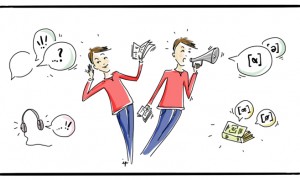The software, known as Greyball, uses data collected from the Uber app and other techniques to identify and circumvent officials who were trying to clamp down on Uber in areas where its service had not yet been approved.
A Uber spokesman and the Justice Department declined to comment, according to the Reuters' report on Friday.
The use of Greyball was first disclosed by the New York Times in March, which triggered a string of negative publicity for the company.
Uber stopped the use of Greyball less than a week after the Times' disclosure of Greyball.
Transportation authorities from the city of Portland, Oregon, where Uber did not have a permit to operate before April 2015, conducted an investigation into the company's illegal entry into its market and efforts to avoid city regulators.
According to the city's Greyball audit report released last week, Uber used the technology to tag 16 individual riders who were identified as government officials.
The city said Uber evaded Portland Bureau of Transportation officials and denied 29 of their ride requests from Dec. 5 to Dec. 19, 2014.
Despite acknowledging the use of Greyball, Uber claimed earlier in a blog post that Greyball was used partly to prevent fraud and protect its drivers from harm.
"This program denies ride requests to users who are violating our terms of service -- whether that's people aiming to physically harm drivers, competitors looking to disrupt our operations, or opponents who collude with officials on secret 'stings' meant to entrap drivers," it said.
The Justice Department's investigation into Uber is still in its early stages, the sources told the Reuters, adding that the nature of any potential federal criminal violation and its likelihood of anyone being charged is unclear.
Uber has been struggling with numerous problems, including allegations of its harassment-ridden culture, questions over the leadership of its chief executive and accusations of stolen trade secrets from Google's parent company Alphabet.







